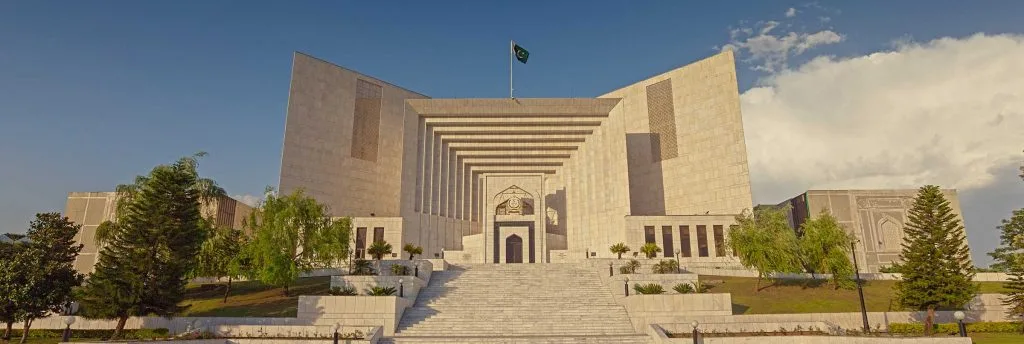“If a judge is removed only on the basis of a speech, half of the judiciary would go home,” CJP Isa remarked, adding that many judges addressed bar councils.
InShort :
- No Supreme Judicial Council against Justice Siddiqui.
- He will be considered as retired judge.
- Justice Siddiqui is eligible for all privileges and pensions of a retired judge
Declaring the dismissal null and void, the court ruled that Justice Shaukat Siddiqui will be considered a retired judge now.
The Supreme Court also cancelled the recommendation of the Supreme Judicial Council against Justice Siddiqui, while the notification of his dismissal was declared invalid.
“Unfortunately, due to the delay in the Supreme Court decision, Justice Shaukat Aziz Siddiqui has reached the age of superannuation,” the verdict stated.
It further said that Justice Siddiqui could not be reinstated as a judge, and should be considered a retired judge.
Justice Siddiqui is eligible for all privileges and pensions of a retired judge, the court noted, adding that a judge could be suspended over misconduct only after granting them a chance for a fair trial.
“Justice Shaukat Aziz Siddiqui was not given an opportunity to prove his allegations. He was dismissed over mere allegations,” the Supreme Court ruled. A five-member larger bench of the Supreme Court, headed by Chief Justice of Pakistan Qazi Faez Isa, had reserved its decision on January 23 on an appeal of the former judge of the Islamabad High Court against his removal from office. The CJP had stated that, if deemed necessary, the case could be re-heard.
Last hearing :

During the last hearing, Siddiqui’s counsel Hamid Khan said that their case was about the Supreme Judicial Council conducting an inquiry first, as they would have got an opportunity to question former Inter-Services Intelligence (ISI) chief L Gen (retd) Faiz Hameed.
The chief justice asked if the judge could be removed even if his allegations proved correct during the inquiry despite the fact that he made those allegations in public.
The counsel asked the court to quash the initial proceedings against Shaukat Siddiqui. After that, a commission should be formed and an inquiry conducted afresh.
“If a judge is removed only on the basis of a speech, half of the judiciary would go home,” CJP Isa remarked, adding that many judges addressed bar councils.
He also said that the text of the speech had to be seen, further saying that if the proceedings against the judge were quashed it would be akin to accepting his allegations as true.
Hamid Khan said this was the first case of its kind where a judge was removed without an inquiry. A detailed decision was needed on why an inquiry was necessary before removing a judge, he added.
According to the 1956 and 1962 constitutions, a judge could not be removed without a presidential reference, Hamid Khan said, adding that the same condition existed in the 1973 Constitution also.
A day earlier, former ISI chief Lt Gen (retd) Faiz Hameed had vehemently denied the allegations of influencing the judiciary in this case. In a response submitted to the Supreme Court through lawyer Khawaja Harris, Faiz Hameed refuted the allegations of Shaukat Aziz Siddiqui about an alleged meeting before the Judicial Council in his speech.
The reply emphasized that the alleged meeting’s request made by Siddiqui was unequivocally rejected, and Gen (retd) Faiz Hameed asserted that he never contacted the former judge.
In the broader context of the case, the reply stated, former chief justice of Islamabad High Court, Justice (retd) Anwar Kasi, also submitted a response rejecting the allegations made by Shaukat Siddiqui. Brigadier (retd) Irfan Ramey’s reply was also presented, where he denied the accusations and meetings put forward by the judge.
Justice Anwar Kasi asserted that no secret agency attempted to influence during his tenure. The response highlighted the need for Shaukat Siddiqui to provide any material supporting the allegations, but none was provided.

